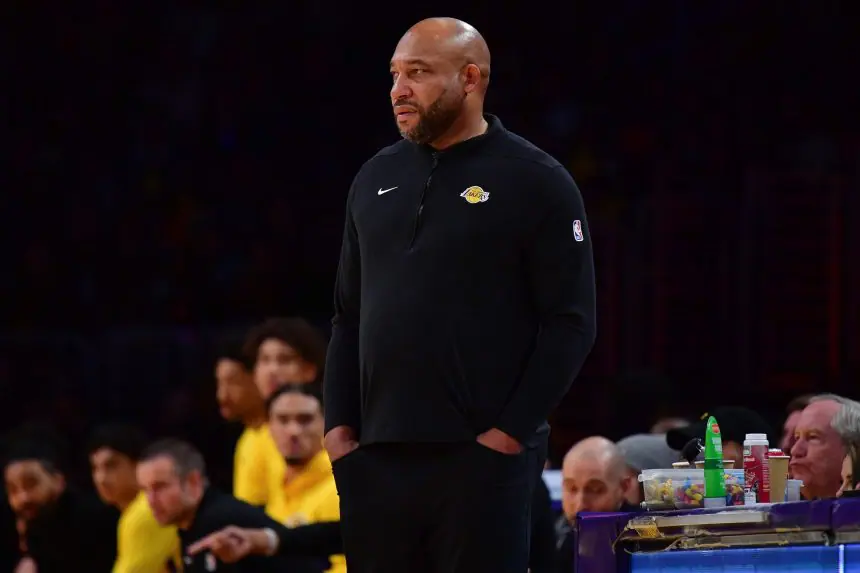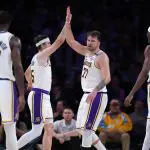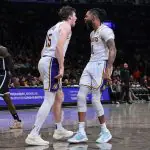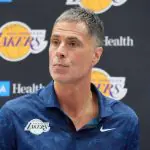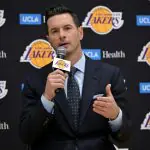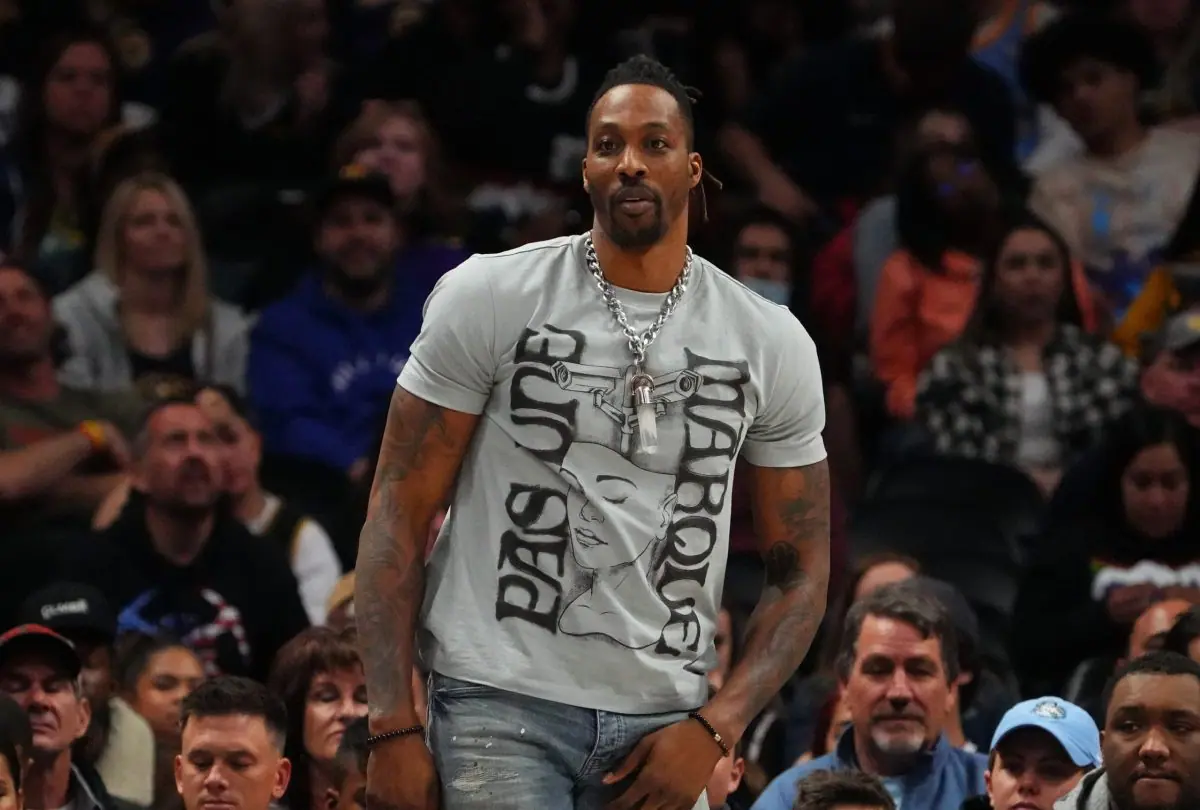Following a tumultuous season that ended in a gentlemen’s sweep at the hands of the Denver Nuggets, the Los Angeles Lakers have elected to fire Darvin Ham.
Vice president of basketball operations Rob Pelinka and team governor Jeanie Buss have maintained steadfast support of Ham throughout the season as recently as a couple weeks ago. But with pressure mounting both internally and externally, they have decided to go in a different direction.
Ham finishes his Lakers tenure with a final record of 90-74 in the regular season and 9-12 in the postseason. He also won an In-Season Tournament final.
Overall, Ham’s two years are fascinating to look back on. He started in the precarious position of being asked to make things work with Russell Westbrook and a brutally flawed roster. Frankly, this was an impossible ask, especially of a rookie head coach. The Lakers started the year 2-10 and spent most of the season mired in mediocrity (at best).
To his credit, Ham maintained buy-in from the locker room, and once Westbrook was finally traded, the Lakers went on an immediate run that landed them in the Western Conference Finals. They were, however, swept by the eventual champion Nuggets.
As far as rookie seasons go, though, it was a pretty impressive campaign that had many in the organization incredibly optimistic about how Ham would fare in his second year.
Heading into this season, the prevailing hope was that the Lakers would build on last year’s run by returning the core of that team. LeBron James, Anthony Davis, Austin Reaves, Rui Hachimura and Jarred Vanderbilt all played key roles last season, and the thought was Max Christie would step into a larger role in his second year.
Pelinka also brought in veterans Gabe Vincent, Taurean Prince, and Christian Wood to bolster that core and gambled on younger players like Jaxson Hayes and Cam Reddish to perhaps outplay their veteran minimum contracts.
Here’s how one Lakers source described the process that went into putting the roster together:
“Rob and Darvin essentially collect data from scouts and other team personnel, then lock themselves in a room to make decisions on the roster,” the source said. “It’s why so many people have been scratching their head all year at Darvin not relying on those guys from last year.”
Injuries played a role in some of Ham’s decisions, as Vanderbilt and Hachimura both missed chunks of time this year and Reaves started the season slow coming off playing on Team USA last summer, but frustrations did mount throughout the year as that core went mostly ignored and the Lakers struggled.
All season, reports have swirled around the Lakers painting a picture of real disconnect between Ham and the players. Most recently, Ham and Davis traded quotes after Davis said, “We have stretches where we don’t know what we’re doing on both ends of the floor” following the Lakers’ collapse in Game 2.
When asked about that quote, Ham agreed to disagree with Davis, chalking up the statement to frustrations and emotion after such a brutal loss.
“When I saw Darvin’s response to AD, that’s when I knew he was done,” said a team source. “He’s a prideful man and having his organizational skills questioned with his back against the wall was never going to end well. Can’t call your star emotional, though.”
Ham’s problems in the locker room started early and never really improved until it was too late.
According to sources close to the situation, members of last year’s core felt like victims of a bait and switch. All offseason, they were sold on how they would build on continuity. Instead, everyone but James and Davis was benched at different points of the season and that group only got a real look until well after the season’s halfway point.
When Prince was chosen to start at the beginning of the season over Hachimura, several players were taken aback. No one held it against Prince, to be clear, but many in the locker room and throughout the organization were left wondering why plans that had been in place for months were now thrown out the window right at the start of the season.
When Prince, Reaves and Russell struggled as a group and Reaves was sent to the bench, things took an even darker turn, sources say, as team officials couldn’t help but wonder why Ham had so little patience with Reaves, but guys like Prince and Cam Reddish were given endless opportunity to try to figure things out.
As Reddish never figured things out and Prince only started to shine once given a smaller role, all those games and reps they got early in the season feel like wasted time and energy — especially as those reps came at the expense often times of Christie, who the organization was looking to develop and learn about ahead of his free agency this summer.
When Reaves, Russell and even Hachimura were benched for a lineup of Prince, Reddish, Vanderbilt, James and Davis, that was the moment many lost faith in Ham altogether, sources say.
“It made no sense,” one Lakers source said. “[Ham] was clearly fighting for his life out there but just kept ignoring the thing everyone knew could (and eventually would) turn the season around. Guys started really tuning him out right then and there. And once you lose the locker room like that, you can’t get it back.”
Another tendency that wore thin on players was Ham consistently shifting blame from things he could do strategically to player effort, engagement or commitment. His constant refusal to take accountability while his lineups underwhelmed or made little sense, combined with timeouts that almost always carried the same droning message, left Ham with basically no allies in the locker room by the time the season finally ended.
“You can lack some communication skills if you’re great with X’s and O’s,” said one Western Conference assistant coach. “You can make up for some strategic issues if you’re a great communicator. You can’t be bad at both, and he was pretty clearly struggling on both fronts.”
Where the Lakers go from here is unclear. Both league and internal sources believe the Lakers will focus this time on experienced head coaches, given how things went with Ham. Issues with that approach are mainly that the candidate pool is relatively shallow now, which likely forces the Lakers to hope some currently employed coaches become available after their teams get knocked out of the playoffs, and cost.
Buss is going to be on the hook for the remaining two years on Ham’s contract. With elite coaches now costing upwards of eight figures per year, a lot will be riding on getting this hire right financially, too.
It’s probably also worth wondering about Pelinka, who passed on hiring Tyronn Lue only to hire Frank Vogel, who sources say he never really seemed to believe in, then fire Vogel and hire Ham, who is now fired after only two seasons. Buss would be remiss not to have a tough conversation with Pelinka about what is going wrong with his coaching hires.
Regardless of what comes of that conversation (if it happens), the Lakers will have to nail this next coaching hire after wasting two prime James and Davis years on Ham. Their next hire will have to not only better maximize the remaining years James has, but also serve as a bridge to the post-James era. Such a candidate is not only extremely rare, but also expensive.
For Ham, his reputation around the league is still such that he should be able to find an assistant coaching gig relatively quickly. He’s still well-liked in league circles and held in high regard in that kind of role.
Ultimately, it was an up-and-down tenure for Ham, and this second season feels like a big missed opportunity for all involved.

